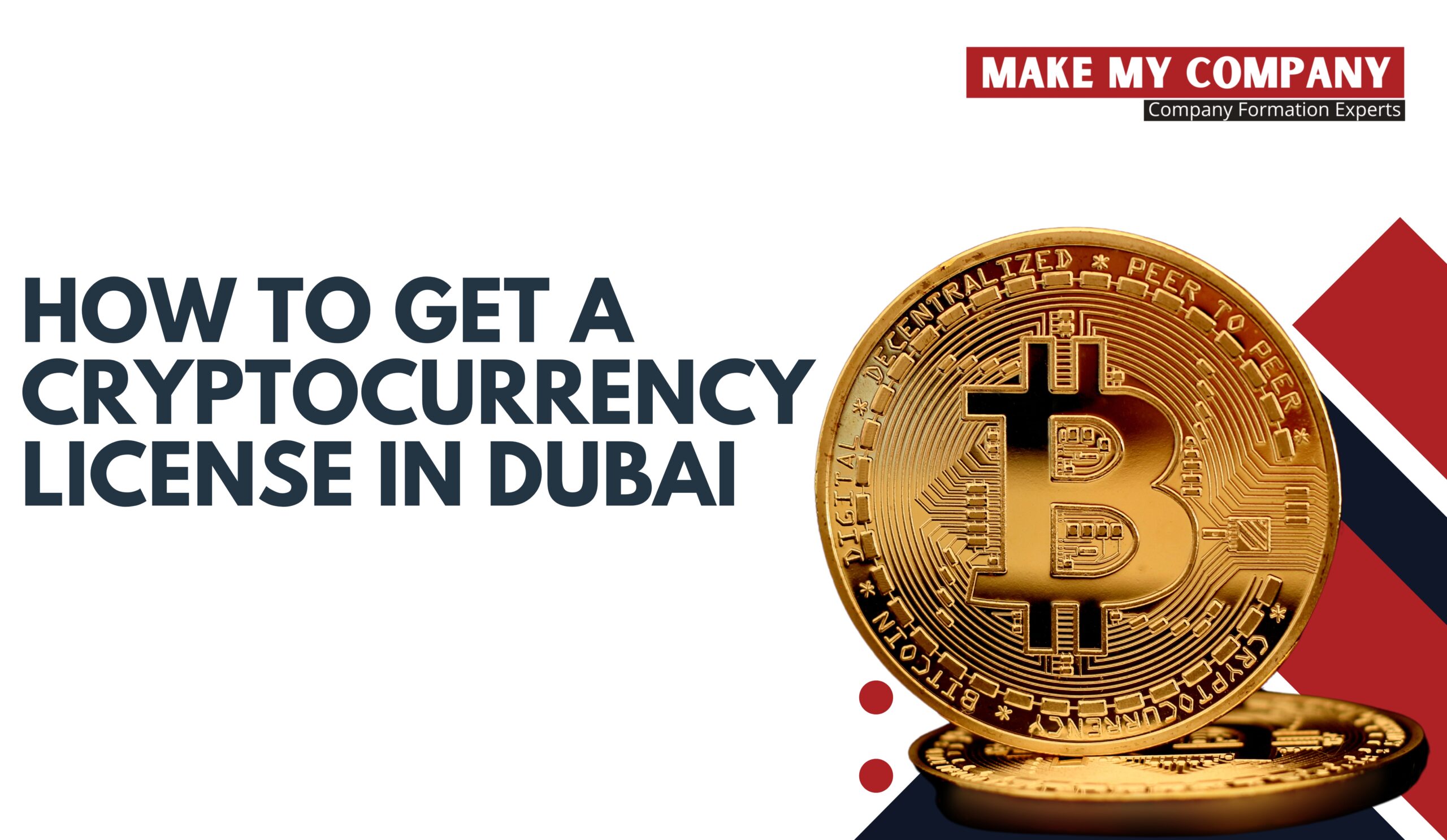Dubai has rapidly emerged as a global hub for cryptocurrency and blockchain innovation. With its forward-thinking regulatory framework and business-friendly environment, obtaining a Dubai crypto license has become increasingly attractive for entrepreneurs and established businesses alike. The UAE government’s proactive approach to digital assets has positioned Dubai as a leading destination for crypto startups, exchanges, and investment firms seeking legitimacy and growth opportunities.
The cryptocurrency landscape in Dubai is characterized by a perfect blend of innovation and regulation. As traditional financial centers worldwide grapple with how to approach digital assets, Dubai has embraced the technology while implementing sensible oversight. This balance makes a Dubai crypto license particularly valuable for businesses looking to operate within a clear regulatory framework while accessing emerging market opportunities.
In this comprehensive guide, we’ll explore everything you need to know about cryptocurrency licensing in Dubai – from understanding the different license types and application requirements to navigating the regulatory landscape and maximizing your business potential in this thriving ecosystem.
Why Choose Dubai for Your Crypto Business?
Dubai offers a perfect mix of innovation, low taxes, and strong government support for crypto businesses. With clear regulations, modern infrastructure, and global connectivity, it’s a smart place to launch and grow. Whether you’re a startup or scaling up, Dubai gives you the tools to succeed in the crypto space.
Strategic Geographic Position
Dubai’s strategic location between East and West makes it an ideal base for global operations. This geographic advantage allows crypto businesses to serve markets across Asia, Europe, Africa, and the Middle East from a single location. The time zone positioning enables trading and customer service operations that can effectively cover major financial markets worldwide.
Tax Advantages
One of the most compelling reasons entrepreneurs seek a Dubai crypto license is the favorable tax environment. The UAE offers:
- 0% corporate tax for businesses in certain free zones
- No personal income tax
- No capital gains tax
- No withholding tax
These tax incentives create an attractive proposition for crypto businesses looking to maximize profitability while maintaining full regulatory compliance.
Regulatory Clarity
Dubai has established itself as a pioneer in crypto regulation, providing much-needed clarity in an industry often plagued by regulatory uncertainty. The Virtual Assets Regulatory Authority (VARA) and other regulatory bodies have created frameworks specifically designed for digital assets, giving businesses confidence in their long-term operations.
Innovation-Friendly Environment
The Dubai government actively encourages technological innovation through various initiatives:
- Dubai Blockchain Strategy
- Smart Dubai initiatives
- Innovation hubs and accelerators
- Regular tech conferences and networking events
This supportive ecosystem makes Dubai an ideal environment for cryptocurrency startups and established businesses looking to innovate.
Growing Crypto Community
The emirate boasts a rapidly expanding community of blockchain developers, crypto entrepreneurs, investors, and service providers. This network offers valuable connections, partnership opportunities, and knowledge sharing that can accelerate a business’s growth trajectory.
Types of Cryptocurrency Licenses in Dubai
Dubai offers several licensing options for cryptocurrency businesses, each tailored to specific activities and regulatory frameworks. Understanding these options is crucial for selecting the most appropriate Dubai crypto license for your business model.
VARA Licenses
The Virtual Asset Regulatory Authority (VARA) provides specialized licenses for businesses dealing with virtual assets. These include:
Minimum Viable Product (MVP) License
This license allows companies to test their crypto business models in a controlled environment before scaling up operations. It’s particularly suitable for startups and innovative business models.
Operational License
For established businesses ready to conduct full-scale operations in Dubai’s crypto marketplace. This comprehensive license covers a wide range of virtual asset activities.
Exchange License
Specifically designed for platforms facilitating the trading of virtual assets. This license addresses the unique regulatory requirements of exchange operations, including security protocols and customer protection measures.
DMCC Crypto License
The Dubai Multi Commodities Centre (DMCC) offers a specialized crypto license that covers:
- Crypto trading
- Blockchain development
- Token issuance services
- Wallet services
The DMCC has positioned itself as a crypto-friendly free zone, attracting numerous blockchain companies with its tailored licensing options and business support services.
Dubai International Financial Centre (DIFC) Options
The DIFC provides licensing options for fintech companies, including those operating in the cryptocurrency space. Its regulatory sandbox allows innovative financial technologies to be tested within a controlled environment before full market deployment.
Commercial Mainland License
For businesses seeking to operate throughout the UAE mainland, a commercial license with specific approval for crypto activities can be obtained. This option may be suitable for companies targeting the local market or requiring a physical retail presence.
Requirements for Obtaining a Dubai Crypto License
Securing a Dubai crypto license involves meeting specific requirements that ensure regulatory compliance and business legitimacy. These requirements vary depending on the license type but generally include:
Legal Structure Requirements
Businesses must establish a proper legal structure, which typically involves:
- Incorporation as a legal entity in Dubai
- Minimum share capital requirements (varying by license type)
- Shareholder and director documentation
- Corporate structure documentation
Physical Presence
Most licenses require some form of physical presence in Dubai, which may include:
- Office space in approved locations
- Minimum square footage requirements
- Lease agreements or property ownership documents
AML and KYC Compliance
Anti-Money Laundering (AML) and Know Your Customer (KYC) compliance are critical aspects of cryptocurrency regulation in Dubai. Requirements include:
- Comprehensive AML policy documentation
- KYC procedures for customer onboarding
- Transaction monitoring systems
- Suspicious activity reporting mechanisms
Security and Technical Infrastructure
Cryptocurrency businesses must demonstrate robust security measures:
- Cybersecurity protocols
- Cold and hot wallet security systems
- Penetration testing results
- Disaster recovery plans
- System architecture documentation
Financial Requirements
Financial stability must be demonstrated through:
- Proof of minimum capital
- Bank references
- Financial projections
- Source of funds documentation
Professional Team
A qualified team with relevant experience is essential:
- Executive team CVs and qualifications
- Compliance officer credentials
- Technical team expertise
- Advisory board (if applicable)
Business Plan and Documentation
A comprehensive business plan must outline:
- Detailed business model
- Market analysis
- Operational procedures
- Risk management framework
- Three-year financial projections
The Application Process for a Dubai Crypto License
Obtaining a Dubai crypto license involves a structured application process. Following these steps carefully will maximize your chances of approval while minimizing delays.
Initial Consultation and Planning
Before submitting any applications:
- Consult with legal experts specialized in Dubai crypto regulations
- Determine the most appropriate license type for your business model
- Identify the optimal jurisdiction (free zone vs. mainland)
- Understand capital requirements and timeline
Company Formation
Establish your legal entity in Dubai:
- Reserve company name
- Prepare and submit memorandum and articles of association
- Complete incorporation documents
- Fulfill initial capital requirements
- Register with relevant authorities
Secure Physical Premises
Obtain appropriate office space:
- Sign lease agreement in approved location
- Complete fit-out if necessary
- Obtain necessary permits
Prepare Documentation Package
Compile comprehensive documentation including:
- Business plan and company profile
- AML/KYC policies and procedures
- Technical documentation
- Security protocols
- Financial documentation
- Professional qualifications
License Application Submission
Submit your application to the relevant authority:
- VARA for virtual asset-specific licenses
- DMCC for free zone options
- Department of Economy and Tourism for mainland licenses
Initial Review and Feedback
After submission, expect:
- Preliminary review of documentation
- Requests for additional information or clarification
- Initial feedback on compliance aspects
Interviews and Due Diligence
Regulatory authorities may conduct:
- Interviews with key personnel
- Background checks on shareholders and directors
- Technical assessments of proposed systems
- Financial due diligence
License Approval and Issuance
Upon successful review:
- Receive preliminary approval
- Pay license fees
- Complete any final documentation requirements
- Receive official license
Post-License Setup
After obtaining your license:
- Open corporate bank accounts
- Complete team recruitment
- Finalize technical infrastructure
- Implement compliance systems
Ongoing Compliance
Maintain compliance through:
- Regular reporting to regulatory authorities
- Annual license renewals
- Updates to policies as regulations evolve
- Regular compliance audits
Costs Associated with Dubai Crypto Licensing
Understanding the financial commitment required for a Dubai crypto license is essential for proper business planning. Costs vary significantly depending on license type, business scale, and other factors.
Initial Setup Costs
License Fees
- VARA licenses: Starting from AED 40,000, depending on activities
- DMCC crypto license: Approximately AED 15,000-30,000
- DIFC options: Starting from AED 20,000
- Mainland commercial licenses: AED 10,000-15,000 plus approvals
Company Formation
- Registration fees: AED 10,000-20,000
- Legal documentation: AED 5,000-15,000
- Initial approvals: AED 2,000-8,000
Office Space
- Free zone offices: Starting from AED 15,000 annually
- Mainland offices: Starting from AED 40,000 annually
- Service fees and deposits: AED 5,000-10,000
Operational Requirements
Minimum Capital
- VARA licenses: Typically AED 500,000-1,000,000+
- DMCC options: AED 50,000-200,000
- Mainland operations: Varies by activity
Banking and Financial
- Corporate account opening fees: AED 2,000-5,000
- Minimum balance requirements: AED 50,000-250,000
- Transaction banking costs: Variable
Compliance Infrastructure
- AML/KYC systems: AED 20,000-100,000 annually
- Security implementations: AED 50,000-200,000
- Audit requirements: AED 10,000-30,000 annually
Ongoing Costs
Annual Renewals
- License renewal: 70-100% of initial license fee
- Visa renewals: AED 5,000-10,000 per employee
- Office lease renewals: Annual increases of 5-10%
Compliance Reporting
- Regulatory reporting systems: AED 10,000-50,000 annually
- External compliance reviews: AED 15,000-40,000
- Legal consultations: AED 20,000-50,000
Insurance Requirements
- Professional indemnity: AED 10,000-30,000
- Cyber liability: AED 15,000-50,000
- Director’s and officer’s insurance: AED 10,000-30,000
Regulatory Framework for Crypto Businesses in Dubai
The regulatory landscape for cryptocurrency businesses in Dubai has evolved rapidly to create a balanced environment that promotes innovation while protecting consumers and financial stability. Understanding this framework is crucial when pursuing a Dubai crypto license.
Virtual Assets Regulatory Authority (VARA)
Established in 2022, VARA is the world’s first specialized regulator for virtual assets. Its framework covers:
- Virtual asset exchange services
- Virtual asset custody
- Virtual asset payments and remittances
- Virtual asset investment services
- Virtual asset advisory services
VARA’s approach incorporates risk-based regulation, focusing on:
- Market conduct
- Customer protection
- Financial crime prevention
- Risk management
- Ecosystem stability
Financial Services Regulatory Authority (FSRA)
For businesses operating in the Abu Dhabi Global Market (ADGM), the FSRA provides a comprehensive framework for crypto activities, covering:
- Digital asset exchanges
- Custody services
- Crypto investment products
- ICO regulations
Dubai Financial Services Authority (DFSA)
The DFSA oversees financial services within the DIFC and has developed regulations for:
- Investment tokens
- Payment tokens
- Security tokens
- Tokenized securities
UAE Central Bank Guidelines
The Central Bank provides overarching guidance on:
- Anti-money laundering for virtual assets
- Banking relationships for crypto businesses
- Consumer protection requirements
Cross-Authority Collaboration
Dubai’s regulatory approach involves collaboration between:
- Federal-level authorities
- Free zone regulators
- International regulatory bodies
This creates a cohesive framework that addresses all aspects of crypto operations while maintaining international standards.
Compliance Requirements for Dubai Crypto License Holders
Maintaining compliance is essential for businesses operating with a Dubai crypto license. The requirements are designed to protect the integrity of the financial system while allowing innovation to flourish.
Anti-Money Laundering (AML) Obligations
Crypto businesses must implement robust AML frameworks including:
- Customer due diligence procedures
- Enhanced due diligence for high-risk customers
- Transaction monitoring systems
- Suspicious transaction reporting
- Sanctions screening
Know Your Customer (KYC) Protocols
Comprehensive KYC processes must include:
- Identity verification using multiple factors
- Address verification
- Source of funds verification
- Ongoing customer monitoring
- Risk-based approach to customer onboarding
Record Keeping Requirements
Businesses must maintain detailed records of:
- All customer transactions
- Due diligence documentation
- Corporate records
- Compliance activities
- Staff training
Records must typically be kept for a minimum of 5-7 years.
Reporting Obligations
Regular reporting to regulatory authorities includes:
- Suspicious transaction reports
- Large transaction reports
- Annual compliance reports
- Financial statements
- Material change notifications
Risk Management Framework
A comprehensive risk management approach must address:
- Market risk
- Operational risk
- Liquidity risk
- Cybersecurity risk
- Regulatory risk
Data Protection and Privacy
Compliance with data protection laws requires:
- Privacy policies aligned with UAE regulations
- Data storage security measures
- Customer consent management
- Data breach response plans
Corporate Governance Standards
Strong governance structures should include:
- Board oversight of compliance
- Clear roles and responsibilities
- Independent compliance function
- Regular internal audits
- Management accountability
Benefits of Having a Dubai Crypto License
Operating with a Dubai crypto license offers numerous advantages that extend beyond mere regulatory compliance. These benefits create substantial business value and competitive advantages.
Legal Certainty and Legitimacy
A Dubai crypto license provides:
- Clear legal status for operations
- Protection against regulatory shutdowns
- Legal recourse in business disputes
- Contractual validity
- Consumer trust and confidence
Access to Banking Services
Licensed crypto businesses gain improved access to:
- Corporate banking relationships
- Payment processing services
- Foreign exchange facilities
- Credit lines and financing options
- International banking connections
Market Credibility
Licensing enhances business credibility through:
- Regulatory verification of business practices
- Compliance with international standards
- Due diligence validations
- Recognition by partners and customers
- Industry association eligibility
Business Development Opportunities
Licensed businesses can access:
- Government contracts and partnerships
- Enterprise client relationships
- International expansion opportunities
- Investment and funding avenues
- Strategic partnerships with financial institutions
Operational Protection
Licenses provide operational security through:
- Defined regulatory boundaries
- Protection from unfair competition
- Dispute resolution mechanisms
- Intellectual property safeguards
- Brand protection
Talent Acquisition
Licensed businesses can more easily:
- Secure work visas for international talent
- Attract top industry professionals
- Provide employment security
- Develop specialized teams
- Invest in talent development
Challenges and Considerations for Crypto Businesses in Dubai
While Dubai offers an attractive environment for cryptocurrency operations, businesses seeking a Dubai crypto license should be aware of several challenges and considerations.
Evolving Regulatory Landscape
The cryptocurrency regulatory environment continues to develop:
- Regulations may change as the industry matures
- New requirements might be introduced
- International regulatory developments may impact local rules
- Compliance costs could increase over time
- Regulatory interpretations may evolve
Banking Relationships
Despite improvements, crypto businesses may face banking challenges:
- Some traditional banks remain hesitant about crypto clients
- Account opening processes can be lengthy
- International banking relationships may be limited
- Transaction monitoring can be intensive
- Higher banking fees may apply
Competitive Environment
Dubai’s popularity as a crypto hub means:
- Increasing competition in the marketplace
- Potential market saturation in some segments
- Need for clear differentiation
- Pricing pressures
- Talent competition
Technical Infrastructure Requirements
Operating a compliant crypto business requires:
- Significant investment in security systems
- Regular technical audits and updates
- Disaster recovery capabilities
- Technical expertise and staffing
- Continuous infrastructure improvement
Market Volatility
The cryptocurrency market’s inherent volatility affects:
- Revenue predictability
- Risk management requirements
- Liquidity planning
- Investment strategies
- Customer confidence
Cross-Border Considerations
International operations present additional challenges:
- Varying international regulations
- Cross-border transaction complexities
- Multiple compliance frameworks
- Geopolitical considerations
- Tax implications in multiple jurisdictions
Future Outlook: Dubai’s Crypto Landscape in 2025 and Beyond
The future of cryptocurrency regulation and business in Dubai looks promising, with several trends and developments shaping the landscape for Dubai crypto license holders.
Regulatory Maturation
We can expect to see:
- More detailed and specific regulations
- Greater harmonization with international standards
- Enhanced regulatory technology requirements
- Possible creation of specialized crypto courts
- Deeper integration between traditional finance and crypto regulations
Institutional Adoption
The crypto landscape will likely see increased:
- Participation from traditional financial institutions
- Enterprise blockchain implementations
- Government utilization of blockchain technology
- Institutional investment in digital assets
- Corporate treasury adoption of cryptocurrencies
Innovation Focus Areas
Dubai is positioning itself as a leader in:
- Central Bank Digital Currency (CBDC) development
- Decentralized Finance (DeFi) regulation
- Non-Fungible Token (NFT) marketplaces
- Metaverse economic frameworks
- Sustainable cryptocurrency mining
Industry Consolidation
The market may experience:
- Mergers and acquisitions among crypto firms
- Strategic partnerships between licensed entities
- Integration of services across the value chain
- Specialization in niche crypto segments
- Emergence of dominant regional players
Global Positioning
Dubai aims to strengthen its position through:
- International regulatory leadership
- Cross-border collaboration frameworks
- Digital asset trade corridors
- Regional crypto hub status
- Talent attraction initiatives
How to Choose the Right Consultant for Your Dubai Crypto License
Selecting the right consultant can significantly impact your success in obtaining and maintaining a Dubai crypto license. Consider these factors when making your choice:
Specialized Expertise
Look for consultants with:
- Specific experience with crypto licensing in Dubai
- Understanding of different license types and jurisdictions
- Technical knowledge of blockchain and cryptocurrency
- Track record with similar businesses
- Relationships with relevant authorities
Comprehensive Service Offering
Effective consultants should provide:
- End-to-end application management
- Compliance system implementation
- Banking relationship facilitation
- Ongoing compliance support
- Technical advisory services
Regulatory Relationships
Valuable consultants maintain:
- Direct communication channels with regulators
- Up-to-date regulatory knowledge
- Involvement in regulatory consultations
- Understanding of regulator expectations
- Insights into upcoming regulatory changes
Success Rate
Evaluate consultants based on:
- Percentage of successful applications
- Average application timeline
- Client testimonials
- Case studies
- Industry reputation
Post-License Support
Ensure ongoing assistance with:
- License renewals
- Compliance updates
- Regulatory reporting
- Business expansion
- Additional license applications
Step-by-Step Guide to Starting Your Licensed Crypto Business in Dubai
This practical roadmap will help you navigate the process of establishing a crypto business with a Dubai crypto license.
Step 1: Define Your Business Model
Before beginning any applications:
- Clearly define your crypto business activities
- Identify target markets and customers
- Develop your value proposition
- Create detailed financial projections
- Define technology requirements
Step 2: Select the Optimal License Type
Based on your business model:
- Research applicable license categories
- Compare requirements across options
- Evaluate costs and timelines
- Consider future expansion plans
- Assess regulatory restrictions
Step 3: Choose the Right Jurisdiction
Select between:
- Mainland Dubai
- DMCC Free Zone
- Dubai Silicon Oasis
- DIFC
- Other specialized free zones
Each offers different advantages in terms of ownership, taxation, and operations.
Step 4: Engage Professional Assistance
Secure expert help from:
- Legal advisors specializing in crypto
- License application consultants
- Compliance specialists
- Corporate service providers
- Banking relationship managers
Step 5: Prepare Your Application Package
Compile comprehensive documentation:
- Business plan and projections
- AML/CFT policies and procedures
- Technical security documentation
- Corporate structure information
- Professional qualifications and CVs
Step 6: Submit Applications and Respond to Queries
During the application process:
- Submit all required documentation
- Respond promptly to regulator questions
- Provide additional information as requested
- Attend interviews if required
- Demonstrate compliance readiness
Step 7: Establish Physical and Technical Infrastructure
While awaiting approval:
- Secure and set up office space
- Implement technical systems
- Develop operational procedures
- Recruit essential team members
- Establish compliance frameworks
Step 8: Finalize Your License
Upon approval:
- Pay all required fees
- Complete any final documentation
- Receive your license certificate
- Register with additional authorities if needed
- Announce your licensed status
Step 9: Open Banking Relationships
With license in hand:
- Apply for corporate bank accounts
- Establish payment processing capabilities
- Set up treasury management systems
- Secure merchant services if applicable
- Create financial controls
Step 10: Launch Operations
Begin your licensed operations:
- Implement marketing strategy
- Onboard initial customers
- Activate compliance monitoring
- Begin regular regulatory reporting
- Establish industry partnerships
Case Studies: Successful Crypto Businesses with Dubai Licenses
Examining real-world examples provides valuable insights into the practical aspects of obtaining and operating with a Dubai crypto license.
Case Study 1: Global Exchange Expansion
A major international cryptocurrency exchange established Dubai operations by:
- Obtaining a specialized VARA license
- Setting up a regional headquarters in DIFC
- Implementing UAE-specific compliance measures
- Creating a localized trading platform
- Establishing banking relationships with three UAE banks
Results included:
- 40% increase in Middle East trading volume
- Enhanced regulatory standing globally
- Access to institutional clients
- Improved fiat on/off-ramp capabilities
- Reduced regulatory risk profile
Case Study 2: Crypto Payment Provider
A blockchain payment solution provider successfully:
- Secured a specialized payment license
- Developed partnerships with UAE retailers
- Implemented multi-currency support
- Created compliant merchant onboarding systems
- Established local technical support team
This resulted in:
- Integration with major UAE retail chains
- Compliance acceptance by local banks
- Expansion to additional GCC countries
- Increased transaction volume by 300%
- Recognition from regulatory authorities
Case Study 3: Digital Asset Custody Service
A specialized custody provider:
- Obtained DMCC crypto license
- Established cold storage facilities in Dubai
- Implemented specialized insurance coverage
- Created UAE-specific security protocols
- Developed relationships with local institutions
Benefits realized:
- Attracted over $500 million in assets under custody
- Secured institutional clients
- Achieved regulatory recognition
- Expanded service offerings
- Created industry benchmark for security
Case Study 4: Blockchain Development Company
A technology development firm:
- Secured mainland commercial license with crypto approvals
- Established development center in Dubai Silicon Oasis
- Partnered with government blockchain initiatives
- Created UAE-focused blockchain solutions
- Built local development team
Outcomes included:
- Government contracts for blockchain implementation
- Private sector enterprise partnerships
- Successful product launches
- Talent attraction from global markets
- Industry recognition and awards
Comparison: Dubai vs. Other Crypto-Friendly Jurisdictions
When considering a Dubai crypto license, it’s valuable to understand how Dubai compares to other popular cryptocurrency jurisdictions.
Dubai vs. Singapore
Regulatory Approach:
- Dubai: Specialized regulatory framework through VARA
- Singapore: Regulated under Payment Services Act
Tax Environment:
- Dubai: 0% corporate tax in free zones
- Singapore: 17% corporate tax with incentives
Market Access:
- Dubai: Gateway to Middle East, Africa, and South Asia
- Singapore: Access to Southeast Asian markets
Business Setup:
- Dubai: Faster incorporation process
- Singapore: More established financial services ecosystem
Dubai vs. Switzerland
Regulatory Framework:
- Dubai: Centralized regulatory approach
- Switzerland: Canton-based regulation with federal oversight
Licensing Options:
- Dubai: Activity-specific licenses
- Switzerland: Banking or fintech licenses
Operating Costs:
- Dubai: Lower operational costs
- Switzerland: Higher costs but established reputation
Banking Access:
- Dubai: Improving but still developing
- Switzerland: Well-established crypto banking services
Dubai vs. Malta
Regulatory Structure:
- Dubai: Single regulatory authority (VARA)
- Malta: Multiple authorities including MFSA and MDIA
Time to Market:
- Dubai: Increasingly streamlined process
- Malta: Lengthier approval timelines
International Recognition:
- Dubai: Growing international reputation
- Malta: Established EU member recognition
Business Environment:
- Dubai: Broader business ecosystem
- Malta: More focused on gaming and financial services
Dubai vs. Bahamas
Regulatory Approach:
- Dubai: Comprehensive regulatory framework
- Bahamas: DARE Act provides lighter regulation
Market Position:
- Dubai: Major global financial hub
- Bahamas: Smaller but crypto-friendly jurisdiction
Infrastructure:
- Dubai: World-class business infrastructure
- Bahamas: Developing business infrastructure
Talent Pool:
- Dubai: Access to global talent
- Bahamas: More limited local expertise
Expert Tips for a Successful Dubai Crypto License Application
These insights from industry experts will help you navigate the Dubai crypto license application process more effectively.
Pre-Application Preparation
Before starting your application:
- Conduct thorough regulatory research
- Align your business model with regulatory expectations
- Prepare detailed operational procedures
- Develop comprehensive compliance frameworks
- Build relationships with local advisors
Documentation Quality
Focus on producing:
- Professional, detailed documentation
- Clear explanations of technical aspects
- Comprehensive risk management frameworks
- Well-structured business plans
- Thorough AML/CFT policies
Team Composition
Present a strong team with:
- Relevant industry experience
- Technical expertise
- Compliance backgrounds
- Financial services knowledge
- Local market understanding
Regulatory Engagement
Approach regulators with:
- Transparency about your business model
- Willingness to adapt to requirements
- Proactive communication
- Respect for the regulatory process
- Preparation for detailed questioning
Technical Implementation
Demonstrate technical readiness through:
- Comprehensive security measures
- Detailed system architecture
- Clear separation of duties
- Robust backup and recovery plans
- Third-party security certifications
Operational Readiness
Show operational preparation with:
- Detailed standard operating procedures
- Clear customer journey mapping
- Risk assessment frameworks
- Staff training programs
- Service provider relationships
Financial Planning
Present sound financial planning including:
- Realistic revenue projections
- Adequate capitalization
- Liquidity management plans
- Cost control measures
- Sustainability planning
Compliance Culture
Demonstrate a strong compliance culture through:
- Board-level compliance oversight
- Regular compliance training
- Independent compliance function
- Compliance technology investments
- Continuous monitoring systems
Conclusion
Dubai has positioned itself as a leading global hub for cryptocurrency and blockchain innovation, offering a balanced approach that combines regulatory clarity with business opportunity. Obtaining a Dubai crypto license represents a strategic advantage for businesses looking to operate in the digital asset space with legitimacy and access to a growing market.
The emirate’s forward-thinking approach to cryptocurrency regulation, combined with its business-friendly environment, world-class infrastructure, and strategic location, creates an unparalleled ecosystem for crypto entrepreneurs and established businesses alike. As the regulatory framework continues to mature, Dubai is likely to strengthen its position as a preferred jurisdiction for serious players in the cryptocurrency industry.
While the process of obtaining a Dubai crypto license involves careful planning, comprehensive preparation, and attention to regulatory detail, the benefits far outweigh the challenges. With the right approach and expert guidance, businesses can navigate the licensing process efficiently and establish compliant operations that position them for long-term success.
As the cryptocurrency industry continues to evolve globally, Dubai’s commitment to fostering innovation while maintaining regulatory standards provides a stable foundation for businesses seeking growth and legitimacy. For entrepreneurs and companies ready to take the next step in their cryptocurrency journey, a Dubai crypto license offers the perfect balance of opportunity and security in one of the world’s most dynamic business environments.
For those considering establishing a cryptocurrency business in Dubai, the time to act is now. The early movers have already secured their positions, but significant opportunities remain for well-prepared businesses ready to meet regulatory requirements and contribute to the emirate’s growing digital asset ecosystem.
For entrepreneurs looking beyond cryptocurrency licensing, Dubai offers comprehensive business setup solutions across multiple sectors. Whether you’re interested in technology, finance, trade, or services, the emirate provides tailored licensing options, world-class infrastructure, and business-friendly policies that support growth and success.
From free zone setups with 100% foreign ownership to mainland establishments with access to the local market, Dubai’s business ecosystem accommodates ventures of all sizes and ambitions. Professional business setup services can guide you through the entire process, from initial consultation and license selection to company formation, visa processing, and ongoing compliance management.
Frequently Asked Questions (FAQs)
What is a Dubai crypto license?
A Dubai crypto license is a regulatory permission granted by authorities in Dubai that allows businesses to legally operate cryptocurrency-related services such as exchanges, custody, trading, and advisory services. These licenses ensure businesses operate within established regulatory frameworks while protecting consumers and the financial system.
Which regulatory authority oversees crypto licensing in Dubai?
The Virtual Asset Regulatory Authority (VARA) is the primary regulator for cryptocurrency businesses in Dubai. Other authorities like the DMCC, DIFC’s DFSA, and the Department of Economy and Tourism also play roles depending on the business location and specific activities.
How long does it take to obtain a crypto license in Dubai?
The timeline varies depending on the license type and business complexity, but typically ranges from 2-6 months. VARA licenses often take 3-4 months, while some free zone options may be faster. Complex business models with extensive services may require longer review periods.
What are the minimum capital requirements for a Dubai crypto license?
Capital requirements vary by license type, ranging from AED 50,000 for basic services to over AED 1 million for comprehensive exchange services. VARA licenses typically require higher capitalization, while some free zone options may have lower requirements.
Can foreign entrepreneurs obtain a Dubai crypto license?
Yes, foreign entrepreneurs can obtain a Dubai crypto license. Dubai welcomes international crypto businesses and offers 100% foreign ownership options in free zones. Non-residents can own and operate licensed crypto businesses, though local directors or representatives may be required in some cases.
What are the ongoing compliance requirements after obtaining a license?
Licensed businesses must maintain AML/KYC compliance, submit regular reports to regulatory authorities, undergo periodic audits, maintain minimum capital requirements, and update policies as regulations evolve. They must also notify authorities of significant operational changes and maintain required insurance coverage.
How does Dubai crypto regulation compare to international standards?
Dubai’s crypto regulations align closely with international standards like FATF recommendations while tailoring approaches to the local market. The framework incorporates elements from established jurisdictions but is uniquely structured to promote innovation while ensuring adequate oversight.
Are there restrictions on the types of cryptocurrencies that can be handled?
Licensed businesses must conduct risk assessments of cryptocurrencies they intend to handle. While there’s no blanket prohibition, high-risk assets with anonymity features may face additional scrutiny or restrictions. Businesses must demonstrate appropriate risk management for each supported asset.
What banking options are available for licensed crypto businesses in Dubai?
Several UAE banks now work with properly licensed crypto businesses. International banks with UAE branches may also serve crypto companies, particularly those with comprehensive licenses. Banking relationships typically require robust compliance programs and regulatory approval.
Can a Dubai crypto license be revoked, and under what circumstances?
Yes, licenses can be revoked for regulatory violations, failure to maintain required capital, breaches of AML/KYC obligations, unauthorized service expansion, or misrepresentations in applications. Licenses may also be suspended during investigations of potential violations.
Is crypto trading legal in Dubai?
Yes, crypto trading is legal in Dubai. The city has embraced digital assets as part of its push toward innovation and smart technology. Individuals can legally buy, sell, and hold cryptocurrencies, provided they use approved platforms and follow local regulations. Dubai encourages responsible use of crypto within a regulated environment.
Can I open a crypto account in Dubai?
Yes, you can open a crypto account in Dubai. Whether you live there or not, many licensed platforms allow you to register, verify your identity, and start trading. The process is straightforward, and once you’re set up, you can fund your account using bank transfers, cards, or crypto deposits.
Which crypto exchange is licensed in the UAE?
Several exchanges operate legally in the UAE under the country’s crypto licensing framework. These platforms are authorized to offer trading services, ensuring user safety and compliance. When choosing one, look for features like strong security, local support, and ease of use to make trading smooth and safe.
How to start a crypto company in Dubai?
To launch a crypto company in Dubai, start by choosing your business model—whether it’s trading, wallets, NFTs, or blockchain development. Next, register your company with the relevant free zone or mainland authority, apply for a crypto activity license, and follow the legal guidelines. A clear plan, compliance, and transparency are key.









